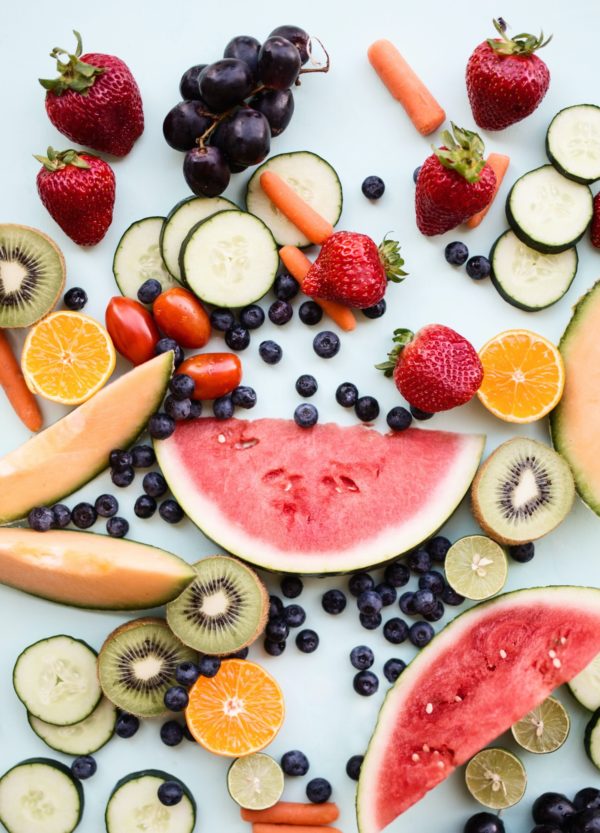
What you eat plays such a huge role in the state of your skin—a healthy glow isn’t just aided by what’s in your beauty cupboard, it’s also heavily influenced by what’s on you plate. I spoke with Trish Maharaj, who is not only the founder of mama-to-be skincare brand Madre, but also a cosmetic chemist and nutritionist. So, I asked Trish to share the best foods to eat for better skin, particularly when you’re an expecting mum. These are the foods you should definitely consider adding to your shopping list.
It starts with the gut
“It is not simply “you are what you eat”, rather “you are what you absorb”. The primary role of the gut is to utilise the nutrients from your food that your body needs. When the body doesn’t receive enough nutrients, it sends the few it can use to vital organs—heart, brain, liver—meaning our skin, hair and nails get pushed aside. We want food to be absorbed as quickly as possible to ensure that it doesn’t sit in the gut and ferment, which can then cause unpleasant gas, bloating & microflora imbalance.”
What should be on your plate
“Eat a high-fibre, colourful plant-based diet centred on vegetables, fruits and legumes. Include small regular servings of wholefood fats such as nuts and avocado with each meal. Choose lower glycemic load foods. My favourite skin foods include: Acai, pineapple, cabbage, sweet potato, seaweed, almonds, Brazil nuts, ground flaxseeds, chia seeds, avocado and lemon.
What to skip
“Limiting refined sugars, artificial sweeteners, dairy, processed foods, alcohol and caffeine. This is hard but these foods are generally the culprits for acne and poor gut health which is directly related to skin health.”
What to drink
“[Make sure to] keep adequately hydrated [by drinking 2 litres a water day] is also essential. Try a pinch of mineral-rich sea salt in your water bottle for better cellular uptake.”
What to eat regularly
“A few examples of ingredients that I’d suggesting incorporating into your diet on a regular basis include:
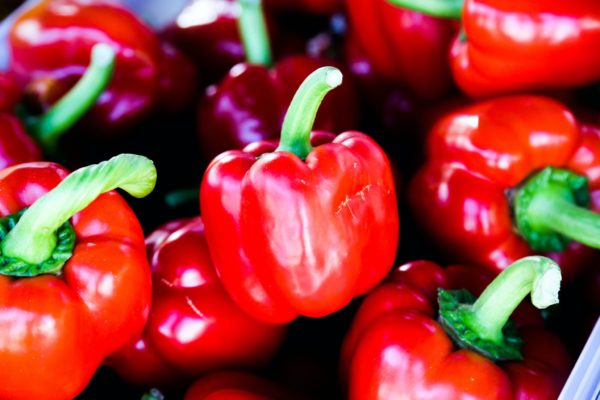
Red capsicum
“With their high antioxidant levels, vibrant red capsicums help to keep your skin healthy and supple. They are a wonderful source of both vitamin C and the mineral silicon, assisting the strengthening and regeneration of collagen, the main structural protein in connective tissue. Healthy collagen production keeps the skin firm and reduces oxidative damage!”
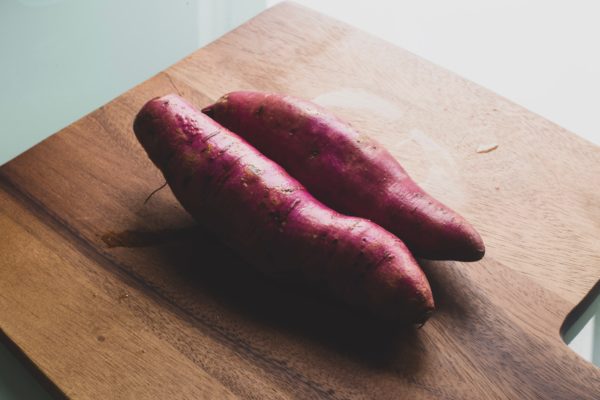
Sweet potato
“Its high levels of beta-carotene convert to vitamin A in the body, meaning it provides us with both vitamins A and C, the antioxidants that fight free radicals from damaging our cell tissue, causing premature ageing.”
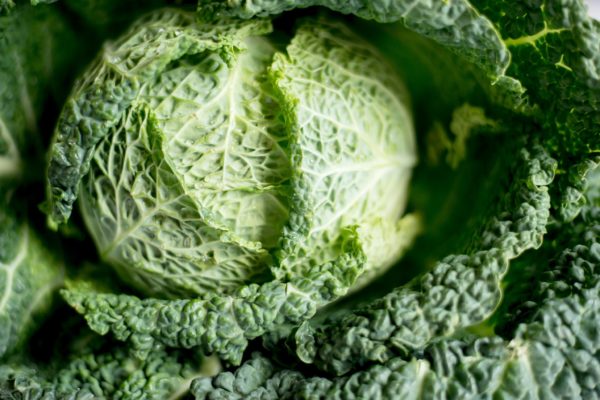
Cabbage
“Containing the skin-loving combo of vitamins A, C and E, cabbage is highest in some of the most powerful antioxidants found in cruciferous vegetables. Interestingly, it actually contains more vitamin C than oranges! By now we know that vitamin C is critical when looking to minimise wrinkles, fight inflammation and heal damaged tissue. Its impressive nutrient content makes it a potent detoxifying food, slowing the ageing process.”
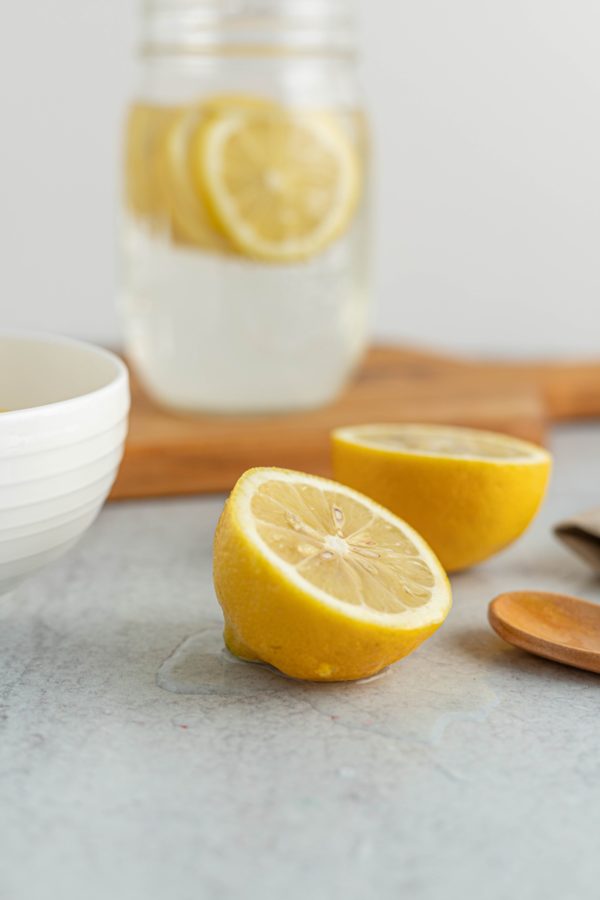
Lemon
“Another good source of vitamin C. Lemons also support the hard-working liver, our main detoxifying organ. They strengthen liver enzymes and promote the secretion of bile, which in turn aids digestion. A detoxification agent, blood purifier and digestive aid, they are in actual fact alkalising once within the body (despite their acidic taste!). [A skin tip would be to] consume the juice of ½ lemon with a cup of warm water first thing daily to cleanse the body and prepare metabolism, and use lemon throughout your day in salad dressings, stir-fries and smoothies.”
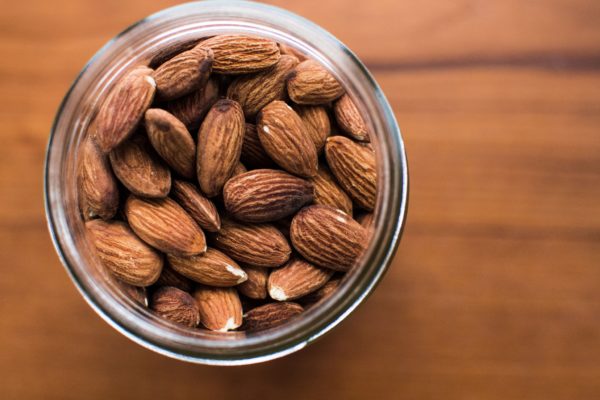
Almonds
“The monounsaturated fats within almonds help retain moisture within the skin, softening and protecting it. These beautifying nuts are rich in vitamin E, the primary antioxidant in human epidermal tissue. Vitamin E works to protect the skin from the damaging effects of ultraviolet rays, whilst also nourishing the skin from within to prevent dryness.
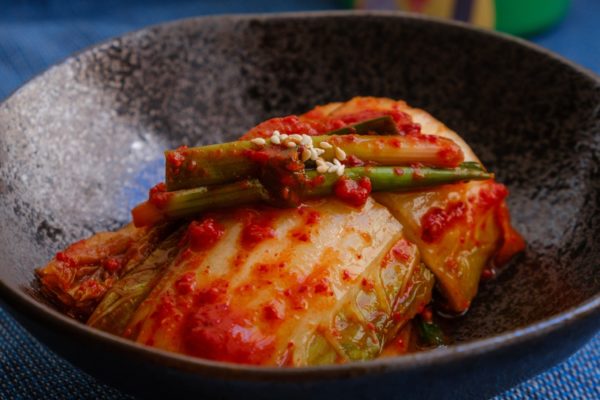
Fermented vegetables
“Loaded with probiotics and enzymes, fermented vegetables work on ensuring the gut is a friendly environment for good bacteria to thrive! This helps with digestion and the absorption of all these skin-loving nutrients. Probiotics also work to keep your system free from nasty pathogenic bacteria that cause digestive upset, poor immunity and inflammation, which may lead to skin irritation, acne or dull, unclear skin.
Other foods to include are all green leafy vegetables, carrots, avocado, berries, ground flaxseed, chia seeds, pumpkin seeds, walnuts and Brazil nuts.”




2 Comments
Hi Kate,
Any chance you can share your food diary, including snacks and drinks through a work day. Thank you
Hi Elizabeth,
Sure, I’ll get onto this post. :)